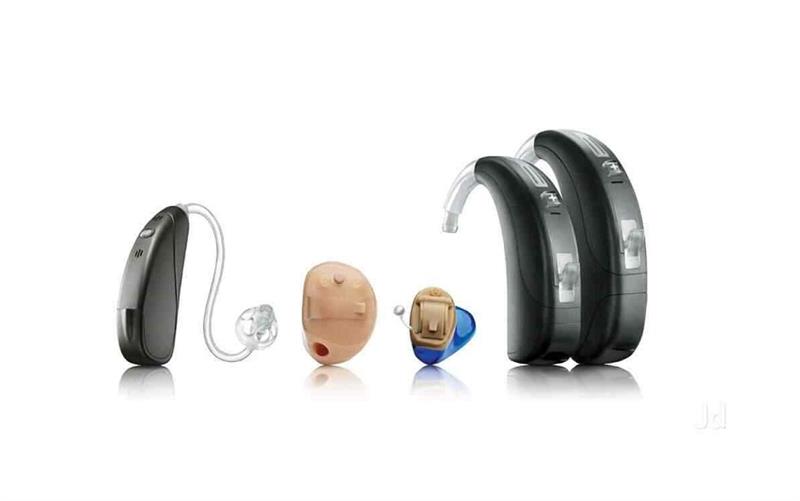
Hearing aids are invaluable tools that enhance the quality of life for millions of people around the world. They provide individuals with hearing loss the ability to engage fully in conversations, enjoy music, and participate in various activities. However, like any technological device, hearing aids require proper care and maintenance to ensure their longevity and optimal performance.
Preventing hearing aid disasters involves a combination of regular maintenance, responsible handling, and professional care. By following these guidelines, you can enjoy the benefits of your hearing aids for years to come.
1. Regular Cleaning and Maintenance
Regular cleaning is crucial to prevent hearing aid disasters caused by moisture, dirt, and debris. Wipe your hearing aids daily with a soft, dry cloth to remove any surface moisture and wax buildup. Use a brush provided by your audiologist to gently clean the microphone ports and receiver openings. Regular cleaning not only improves performance but also prevents infections and skin irritations.
2. Moisture Protection
Moisture is one of the leading causes of hearing aid malfunctions. To prevent moisture-related disasters, remove your hearing aids before showering, swimming, or engaging in activities that may expose them to excessive moisture. Store them in a dehumidifier or a hearing aid dryer overnight to remove any accumulated moisture.
3. Proper Battery Management
Batteries are the lifeblood of your hearing aids. To prevent unexpected battery failures, follow these tips:
Keep spare batteries on hand, especially when traveling.
Store batteries in a cool, dry place and away from metal objects that could cause them to discharge.
When not in use, open the battery compartment to prevent corrosion.
4. Safe Storage
When you're not wearing your hearing aids, store them in their designated case. Avoid placing them in areas exposed to direct sunlight, extreme temperatures, or high humidity. Additionally, keep them out of the reach of children and pets, as they might mistake them for toys or chew on them.
5. Regular Professional Check-ups
Schedule regular appointments with your audiologist for professional cleaning and maintenance. Audiologists have specialized tools to clean hard-to-reach parts and can identify potential issues before they escalate into disasters. They can also fine-tune your hearing aids to adapt to any changes in your hearing needs.
6. Proper Handling
Handle your hearing aids with care to prevent physical damage. When inserting or removing them, do so over a soft surface, such as a bed, to cushion any accidental drops. Avoid using sharp objects to clean them, as this can damage delicate components.
7. Protect from Impact and Falls
Accidental drops and impacts can lead to significant damage to hearing aids. Invest in a protective case or cover that can absorb shocks and impacts. When participating in physical activities, secure your hearing aids to prevent them from falling out.
8. Avoid DIY Repairs
While it's natural to want to fix issues yourself, attempting DIY repairs can often worsen the situation. If you notice a problem with your hearing aids, contact your audiologist for guidance. They are trained to handle repairs and can ensure that your hearing aids are fixed properly.
9. Use a Hearing Aid Retention System
If you're concerned about your hearing aids falling off during physical activities or due to accidental tugs, consider using a hearing aid retention system. These systems help secure your hearing aids in place, reducing the risk of loss or damage.
10. Avoid Extreme Temperatures
Extreme temperatures can impact the functionality of your hearing aids. Avoid leaving them in a hot car or exposing them to freezing temperatures. Extreme heat can damage the internal components, while cold temperatures can lead to condensation issues.
11. Update Hearing Aid Software
Some modern hearing aids are equipped with software that can be updated by your audiologist. Regularly check for software updates to ensure your hearing aids are running the latest versions, which can improve performance and address any known issues.
12. Use a Wind Protector or Sleeve
If you spend time in windy environments, using a wind protector or sleeve can help shield your hearing aids from dust, debris, and wind noise. These accessories can be particularly useful during outdoor activities.
13. Travel Precautions
When traveling, carry your hearing aid supplies and accessories in a travel case designed to protect them. If you're flying, store your hearing aids in your carry-on luggage to prevent damage from checked baggage handling and changes in air pressure.
14. Check for Warranty Coverage
Know the warranty coverage for your hearing aids. If you experience any issues, check if the warranty can cover repairs or replacements. Avoid attempting to repair them yourself, as it may void the warranty.
15. Use Dry-Aid Kits
Dry-aid kits or hearing aid dehumidifiers can help remove moisture and keep your hearing aids dry. Regular use of these kits can prevent moisture-related problems and extend the lifespan of your devices.
It's ideal to keep yourself as educated with your hearing aids and a new breakthrough in the technology. Ask your query via Book an Appointment today. For more information visit https://hearing.careinc.ca or you can call us today at (403)605-6300